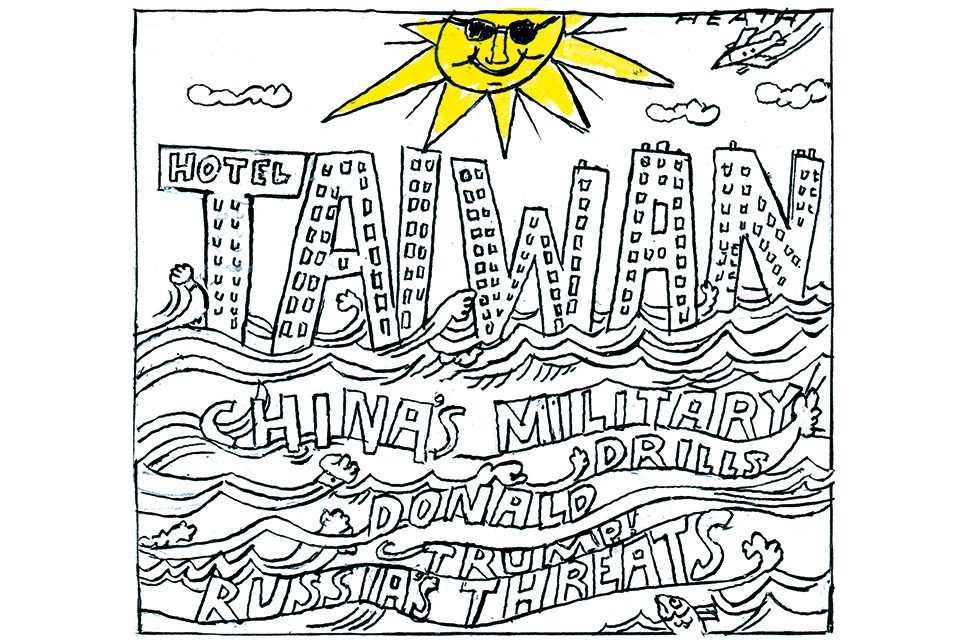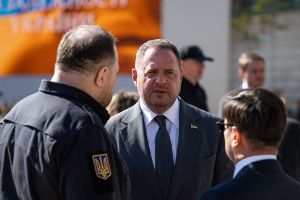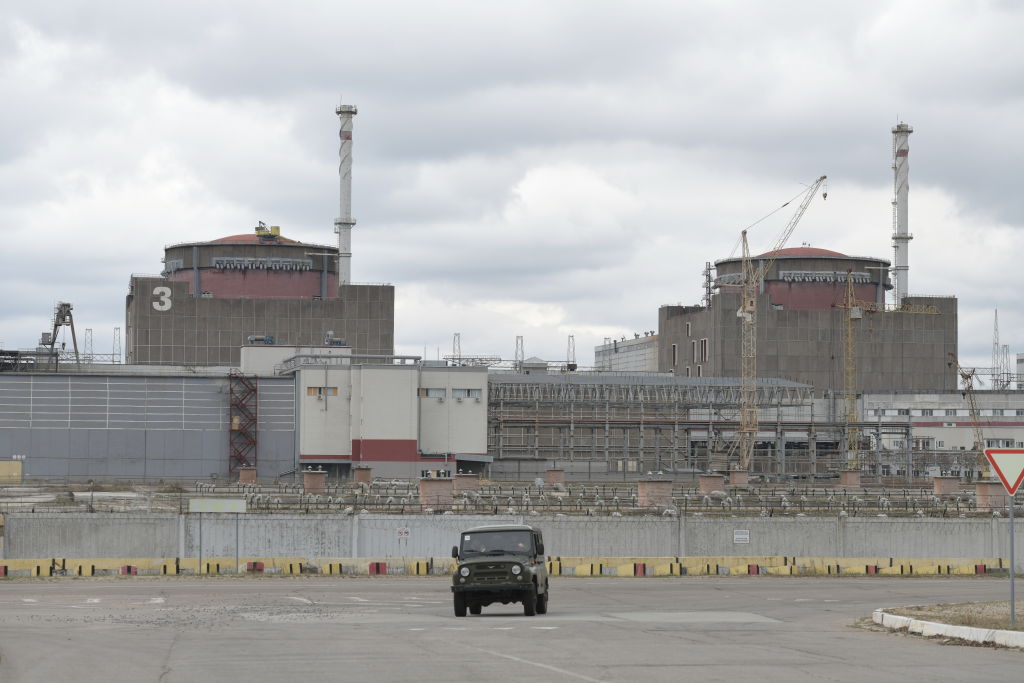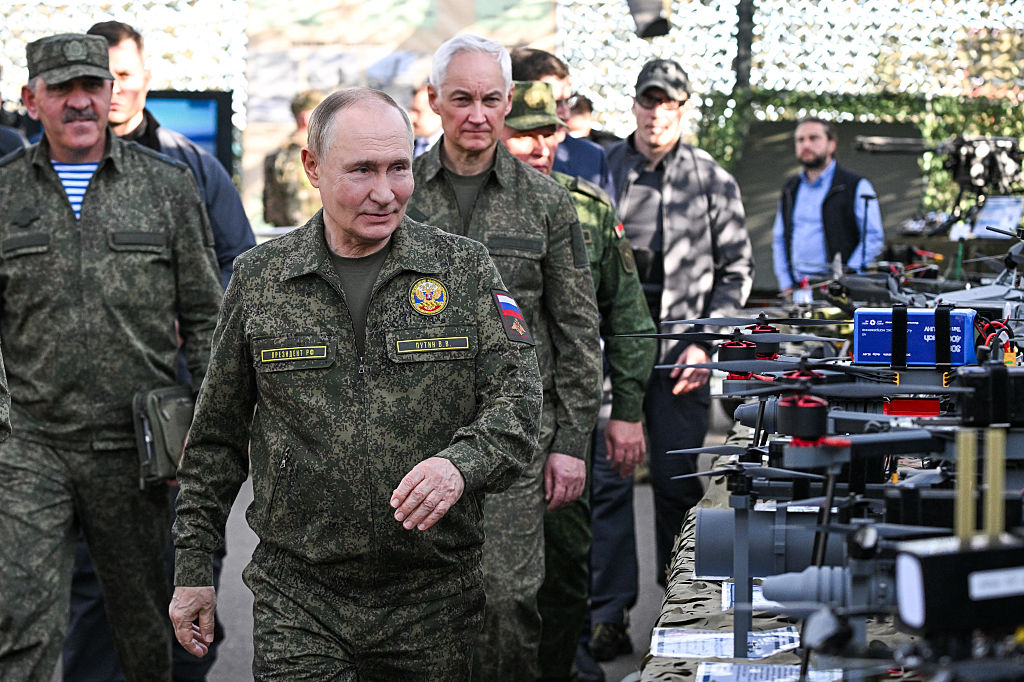The Grand Hotel sits on the outskirts of Taipei, at the edge of Yangmingshan national park. Overlooking the city, the fourteen-story building is designed like a Chinese palace. It was built in the 1950s to host dignitaries when Taiwan was under authoritarian rule. Today it operates as a five-star hotel and is open to tours from the public. Photos of foreign leaders and celebrities who have visited are displayed on the walls: Bill Clinton in 1979; Elizabeth Taylor the same year; Nelson Mandela in 1993. If this were any other hotel, you’d think it was simply boasting about its clientele. But there is something far more poignant about this display — it is proof that Taiwan has been recognized informally over the years through the act of important people showing up. As the number of countries that formally recognize Taiwan keeps dwindling — now down to thirteen — these framed, often blurry photos take on even more significance.
Another photo on the wall is of Margaret Thatcher, who first visited the island in 1992. She was the last former British prime minister to do so, until Liz Truss showed up this week. Truss, always up for a selfie abroad, will no doubt be looking to secure her own framed photo. Her speech at the Prospect Foundation will probably get her what she wants. Last month, speaking about Taiwan, Emmanuel Macron insisted that France would not get “caught up in crises that are not ours” — a line the Chinese Communist Party applauded while France’s state officials tried desperately to bury it. Truss is in Taipei to offer a counter view: that it is “completely irresponsible for European nations to wash their hands of Taiwan.” She wants to fast-track the island into the trans-Pacific free trade bloc, of which the UK just became the newest member.
His reputation may be taking a serious beating back at home, but Donald Trump still retains a solid fan base in Taiwan. His phone call in 2016 as president-elect to Taiwanese President Tsai Ing-wen was the first to take place since 1979, when Jimmy Carter capitulated to China and ended US relations with Taiwan. This has not been forgotten. “Trump recognized us,” sings a bartender, who immediately upon hearing my accent asks who I voted for. My heart sinks when I tell him the truth. It’s all right, he reassures me, Joe Biden is good for Taiwan too. We talk about Biden’s fall pledge to defend the island against China. I think I’m in the clear. Then he throws in: “But Trump made him do it.”
A Taiwanese jet flies fast and low overhead. You can feel it coming. The ground vibrates. “Getting ready for ‘The Bully,’” a street vendor says as one passes overhead. It’s not the only time I hear this phrase. “The Bully” isn’t happy that Taiwan’s president visited the United States. “The Bully” is encroaching on the Taiwan Strait. China’s military drills are always news on the island, but not necessarily top news. I’m amazed by how calmly people speak about this looming threat. “We’re so used to it,” says one student. “It’s part of life here, but only one part.”
The lesson from Ukraine — for the Taiwanese anyway — is that you must show willing to fight. Some young men on the island lament the unfairness of conscription — the girls don’t have to do anything” — as military training is set to increase from four months to one year. There is lots of praise for the UK for taking an early and tough stance on Russia. But when it comes to Taiwan’s own plight, the United States alone is where they pin their hopes. The students I meet say that they are ready to fight, though they debate whether the island could hold out for days or even hours. Then either the US shows up, or it doesn’t.
It’s surreal to listen to these existential conversations in what is the fourteenth richest country in the world. The skyscrapers and streets glisten, enhanced by the mist and the rain. Japan is often given credit for building Taiwan’s core infrastructure, but the Japanese were just as brutal as the Chinese when they controlled the island in the first half of the twentieth century. I’m interested to know whether this causes lingering resentment. For some people, it does. But historical gripes are a luxury that can’t be afforded when there’s a potential invader on your doorstep, and Japan is now a key ally in the region. The Taiwanese are spending even more time in Japan these days. It used to be long weekends in Hong Kong, I’m told, but it’s “too sad” to visit now.
I take a bullet train nearly the length of the island, from Taipei to Tainan. The streets in both cities are overflowing with shoppers and diners. They are heaving more than usual, apparently. At the start of the year, the government looked at its books and decided it had brought in a “surplus” of tax revenue, the bulk of which they have given back to citizens. A cash rebate has been issued to everyone for NT$6,000 (roughly $200). I can’t quite believe it. Politicians came to the conclusion that they collected too much tax, and so handed the money back to the public? Other governments, take note.
My boarding tickets only read “Taipei” thanks to China’s campaign to stop other countries from recognizing the island’s name, even on departure boards. Yet at the airport, there are huge block letters covered in greenery spelling out “Taiwan.” It’s enough to stir up all the neoconservative sentiments from my teenage years.
This article was originally published in The Spectator’s UK magazine. Subscribe to the World edition here.

























